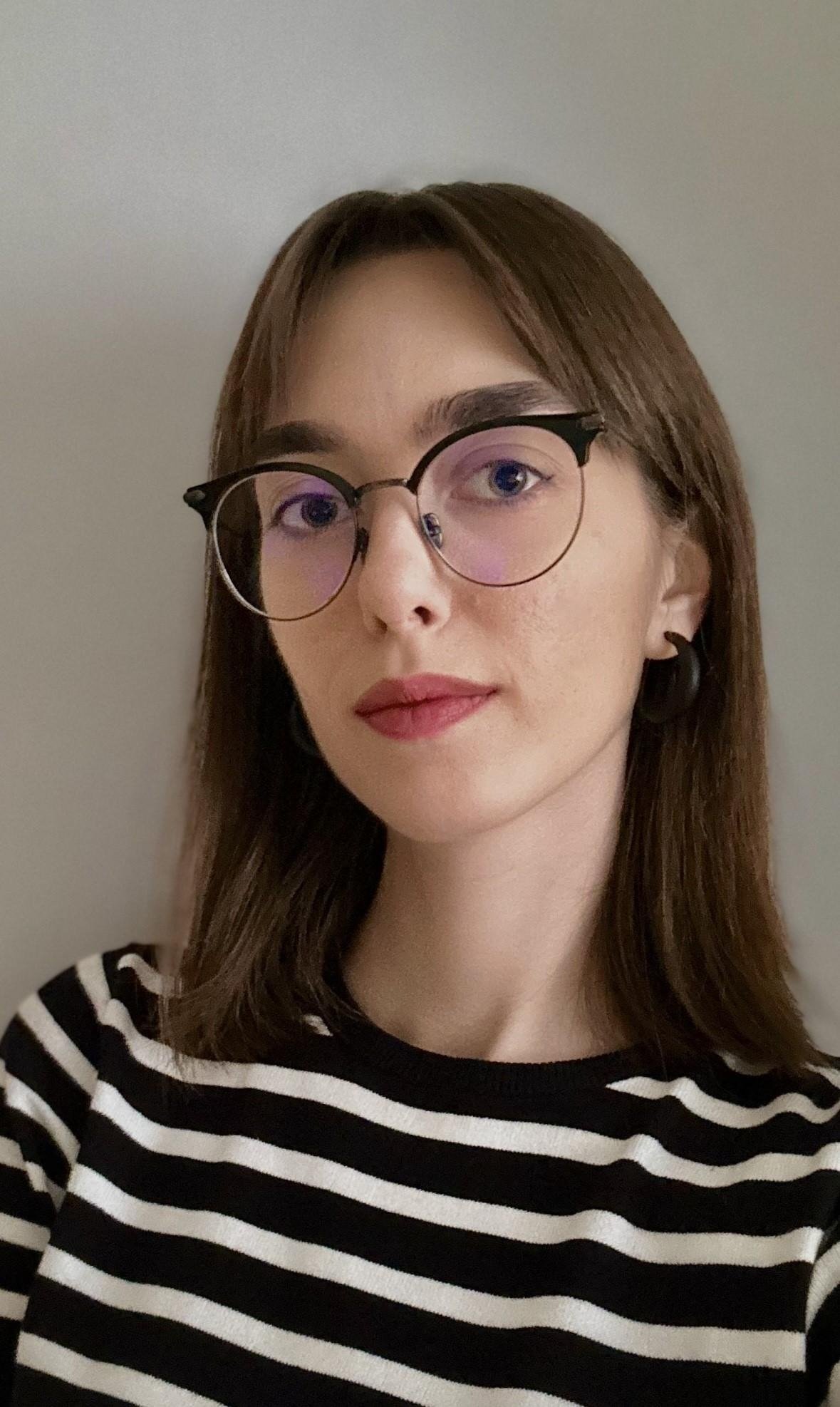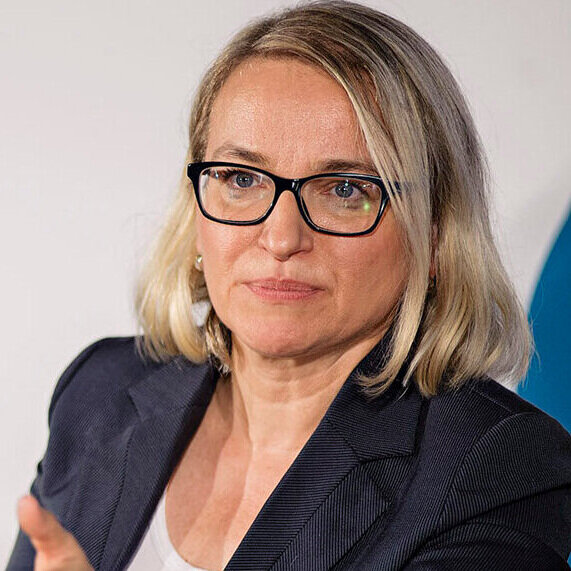People
Newsroom
Foto: Oliver Abraham
editor in chief
Anuška Delić
“
Today, when we are faced with a decline in democratic norms and principles, investigative journalism is the last frontier before all kinds of totalitarisms.
„
In 2006 Anuška started her journey in investigative journalism, while serving as a journalist for the daily newspaper Delo; a professional relationship which she concluded at the end of March 2018. She has acquired extensive experiences and specialized skills in investigative and data journalism and continues to build on those as the founder of Oštro in Ljubljana, Slovenia.
She spent the year of 2015 in courtrooms while being prosecuted for allegedly publishing classified information in stories about neo-Nazis in the ranks of the political party SDS. She faced a three year prison sentence, but was eventually acquitted of all charges.
At the time, she also established “The MEPs Project” which brought together journalists which represented all 28 EU member states. Their demand for the release of data concerning how Members of the European Parliament spend their professional allowances took them to the EU Court of Justice.
Anuška works for OCCRP as a regional editor. She is also a member of the International Consortium of Investigative Journalists (ICIJ) and the network of journalists behind Forbidden Stories. As a member of ground-breaking global investigations, such as the Panama Papers, Paradise Papers, FinCEN Files and The Laundromats she is a co-recipient of several awards, including the Pulitzer Prize on Explanatory Reporting.
For her and her teams' data work she received the Websi media award and the Watchdog award for exceptional achievements given by the Slovene Association of Journalists. For her work on The MEPs Project the European online media outlet Politico Europe ranked her 6th among 28 most influential Europeans in 2018.
Her heart is divided to Slovenian on her mother’s side, and Croatian on her father’s side, therefore Oštro too will also sit at the crossroads of both countries.
deputy editor in chief, journalist
Mašenjka Bačić
“
Investigative journalism is a tool for uncovering social injustices, and even sometimes for their correction. This tool sharpens our views on the world and enables us to understand it better.
„
Mašenjka Bačić is a graduate sociologist who has been engaged in journalism since 2007. She has collaborated with commercial, nonprofit, and public media outlets in Croatia and abroad – Slobodna Dalmacija, H-Alter, Pogledaj.to, Lupiga, Bilten, HR3, Novosti. She was one of the initiators of the portal STav from Split.
In 2016, she was a recipient of the Balkan Fellowship for Journalistic Excellence and won second prize for a story that shed light on the limited availability of abortion in Croatia. She is coauthor of the book Gazda: Početak about privatization in Croatia after the fall of Yugoslavia. She participated in the global Pandora Papers investigation.
Her articles have been published on Balkan Insight, Euronews, and The Guardian.
journalist
Ana Čelar
“
Investigative journalism is not mere reporting; it penetrates the inert structures of society, promotes accountability of those in power, and awakens the awareness of the need for change.
„
Ana Čelar, a political science graduate, began her journalism journey in 2017 while writing voluntarily for a website focused on music and other arts. She has been working as a journalist since 2021, gaining experience at broadcasting, content, and digital production company RTL where she published original stories and explored diverse topics. She joined Oštro in June 2023.
journalist
Ema Grgić
“
Investigative journalism is a relentless pursuit of stories hidden in the overlooked corners of society. It doesn’t allow those involved to become complacent, while ensuring the public remains fully aware.
„
Ema Grgić is a graduate student of anthropology and ethnology. Since 2019, she has been publishing articles in student magazines and worked as an editor for one of them for two years. She joined Oštro in March 2024.
Board Members
Exceptional individuals from various areas of journalism and media watch over Oštro.
Miranda Patrucić
“
Investigative journalism is one of few things that still make a big difference for the better in the world.
„
Based in Sarajevo, Miranda Patrucić is an investigative reporter and regional editor for OCCRP focusing on Central Asia, the Balkans and the Caucasus. She is the recipient of the Knight International Journalism Award, the Global Shining Light Award, the IRE Tom Renner Award, the Daniel Pearl Award and the European Press Prize. She is much in demand worldwide for training journalists on how to investigate and uncover corruption, money laundering and how to follow the money. She is a member of the International Consortium of Investigative Journalists (ICIJ) and the network of journalists behind Forbidden Stories.
Jelena Ćosić
“
There are more and more new centers for investigative journalism, but there is also more and more crime and corruption. Invest in new centers and new colleagues – it is the gain for profession s well as for the citizens and society in general.
„
Jelena Cosic is ICIJ's training manager and Eastern European partnership coordinator. She is also data and research journalist and worked on ICIJ’s Fincen Files, Luanda Leaks and China Cables.
Prior to joining ICIJ, she worked as a reporter, regional coordinator and project manager for the Balkan Investigative Reporting Network (BIRN).
She has received several investigative journalism awards, including a Certificate of Excellence, Global Shining Light Award; an EU Investigative Journalism Award in the Western Balkans and Turkey; and dozens of awards during her work with ICIJ, Tom Renner Award, finalists for Pulitzer Prize and Nobel Peace Prize nomination.
Đurđica Klancir
“
At the moment, there are too many untouchable persons in Croatia and that’s why it is extremely important that there are journalists’ projects that treat everyone equally, that do not bypass the "holy" big advertisers and the most powerful politicians in the country.
„
During her career, Đurđica Klancir worked as a journalist and editor in many influential Croatian media. She was the editor-in-chief of three major media projects. She was the head of the political weekly Globus from 1997 to 1999. In 2005 she was appointed as creator and editor-in-chief of the Business.hr media project.
In 2009, she started to work at Tportal, being its editor-in-chief from 2014 to 2016.
She is a member of the Croatian Journalists' Association (HND) and member of its Journalists' Council of Honor. She was also Council’s president from 2019 to 2020. In 2019 she won HND’s award for journalist of the year. As a representative of the HND, she was elected an external member of Croatian Parliament Committee for Information, Informatization and Media.







